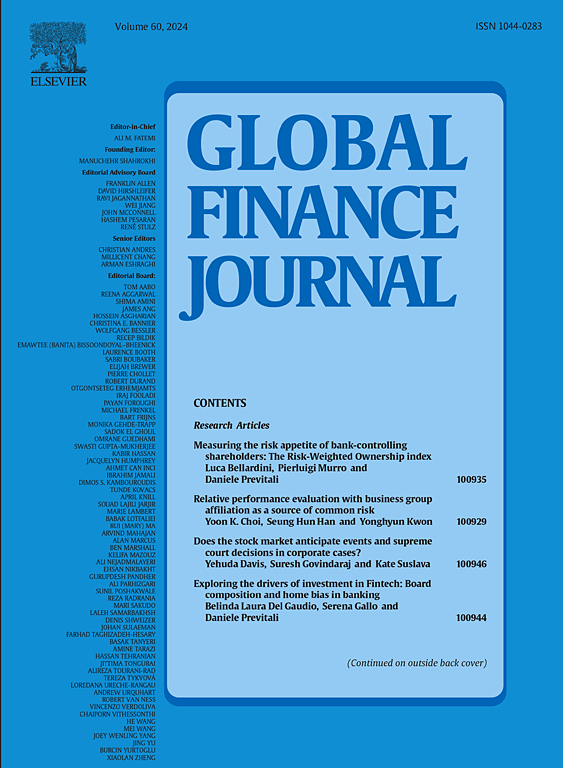ESG in the headlines: Media-driven reputational risk and stock performance
IF 5.5
2区 经济学
Q1 BUSINESS, FINANCE
引用次数: 0
Abstract
This study examines the impact of environmental, social, and governance (ESG) reputational risks on stock performance. We use a unique dataset of media-driven ESG reputational risk indicators, covering 4963 Chinese firms from 2009 to 2023. On average, a one-standard-deviation increase in ESG reputational risks is associated with a 4.5 % decrease in simple stock returns, a 14.5 % reduction in excess stock returns relative to the market index, and a 12.2 % decline in excess stock returns compared to peer firms of similar size. These negative effects contradict the traditional risk-return relationship predicted by risk premium theory. Further analysis identifies reduced investor confidence and tighter financing constraints as key mechanisms through which ESG reputational risks negatively affect stock returns. Heterogeneity analyses indicate that the negative impact is more pronounced for firms in non-pollution-intensive industries, those facing financing difficulties, and those exposed to environment-related reputational risks.
ESG头条:媒体驱动的声誉风险和股票表现
本研究考察了环境、社会和治理(ESG)声誉风险对股票绩效的影响。我们使用了一个独特的由媒体驱动的ESG声誉风险指标数据集,涵盖了2009年至2023年间4963家中国公司。平均而言,ESG声誉风险每增加一个标准差,就会导致简单股票回报减少4.5%,相对于市场指数而言,超额股票回报减少14.5%,与同等规模的同行公司相比,超额股票回报下降12.2%。这些负面效应与传统风险溢价理论预测的风险-收益关系相矛盾。进一步分析发现,投资者信心下降和融资约束收紧是ESG声誉风险对股票回报产生负面影响的关键机制。异质性分析表明,非污染密集型产业、融资困难企业和环境相关声誉风险企业的负面影响更为明显。
本文章由计算机程序翻译,如有差异,请以英文原文为准。
求助全文
约1分钟内获得全文
求助全文
来源期刊

Global Finance Journal
BUSINESS, FINANCE-
CiteScore
7.30
自引率
13.50%
发文量
106
审稿时长
53 days
期刊介绍:
Global Finance Journal provides a forum for the exchange of ideas and techniques among academicians and practitioners and, thereby, advances applied research in global financial management. Global Finance Journal publishes original, creative, scholarly research that integrates theory and practice and addresses a readership in both business and academia. Articles reflecting pragmatic research are sought in areas such as financial management, investment, banking and financial services, accounting, and taxation. Global Finance Journal welcomes contributions from scholars in both the business and academic community and encourages collaborative research from this broad base worldwide.
 求助内容:
求助内容: 应助结果提醒方式:
应助结果提醒方式:


